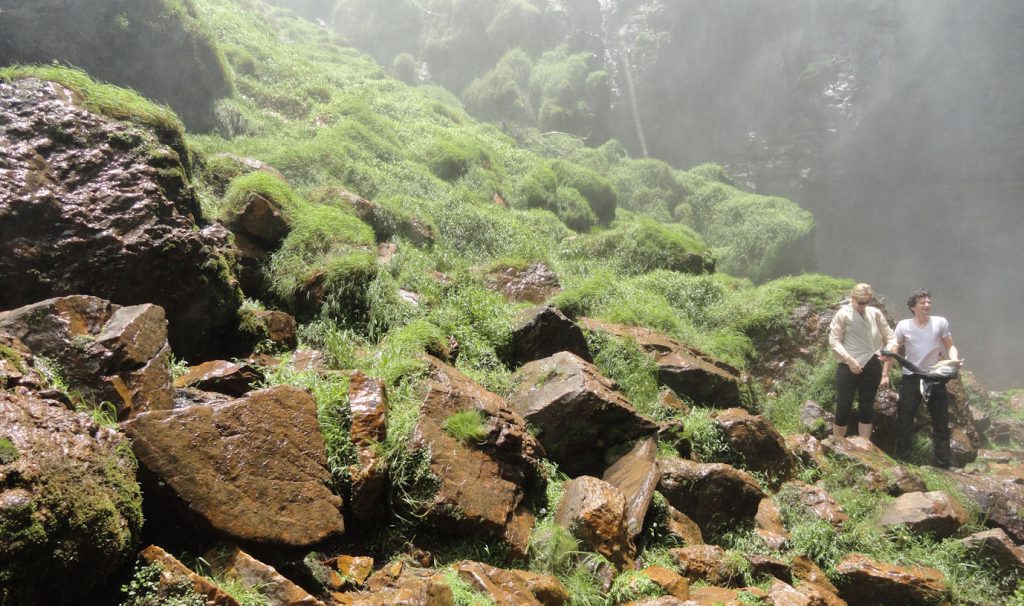
Our biggest tool in SwB and education involvement in Brazil in general is the Fulbright. It was Fulbright that made possible the Brazilian use of IIE and Laspau, without which SwB just would not have worked for us. It is Fulbright that is administering the 1080 Brazilian English teachers travel to the U.S., the U.S. Community Colleges & the Humphrey Program, among many other things.
We don’t think about Fulbright much of the time because it just works. But clearly, if we didn’t have a Fulbright Program, we would have to invent one to do the many things we want done.
I chaired the Fulbright Board meeting Thursday, and would like to share some notes. The Fulbright Board meets four times a year. It is a binational board with Brazilian and American members. I am the ex-officio president and I have a counterpart appointed by Itamaraty. The Brazilian and American governments jointly support Fulbright activities. Given the GOB emphasis on education in the last couple years, Fulbright has become more important, but most of that growth has been as a facilitator of programs. Another crucial role Fulbright has been playing is that of connector. Our board includes influential people, among them reps from CAPES, Itamaraty and academia. These connections have proved extremely valuable in coordinating Mission contacts with Brazil.
As SwB came on the scene, we decided to move Fulbright efforts for Brazilians going to the U.S. more into the social sciences and humanities. The logic was that Fulbright could not compete and should not compete with SwB and, besides, this need was being met. This has turned out to be a good decision. We are getting many good quality applications for the scholarships, more than three candidates for each one. Far from taking away from Fulbright, Science w/o Borders has helped Fulbright by raising its profile. We have more quality applicants than ever.
Among the expanding less traditional programs is Foreign Language Teaching Assistants (FLTA). We will have 45 grants, funded by the Brazilian government. These FLTAs will work in U.S. universities to increase interest and competency in Portuguese among U.S. students. U.S. students also come to Brazil to help at teachers’ colleges. They are spread all over the country, currently at eighteen host institutions. More and more American schools are offering Portuguese and interest is growing.
I learned that the University of Georgia is the flagship of Portuguese learning, i.e. received a big grant from the National Security Education Program (NSEP) to establish an Undergraduate Flagship Program in Portuguese. It is a program of intensive language instruction, one-on-one tutorials, Skype partners in Brazil, and other innovative curriculum. Flagship students will also spend a year in Brazil where they will reach professional-level Portuguese proficiency through language and content courses, as well as an internship experience. UGA is partnering with São Paulo State University (UNESP). This program started in 2012. Pardon the digression.
To me the most impressive thing about Fulbright was the scholarship it sponsors. You can find more about what Fulbright offers at this link, but let me list them. Fulbright Commission in Brazil sponsors programs for Brazilian scholars. There are two main types: all field grants, which offer 3-4 month terms in all fields of study at U.S. universities. There are twenty-five of these grants, plus several specialized “chairs”. The chairs include: Dr Ruth Cardoso Chair in social science at Columbia, Distinguished Chair of Human Rights at Notre Dame, Distinguished Chair of Agricultural Studies at University of Nebraska – Lincoln, Distinguished Chair of Environmental Sciences at University of Texas – Austin, Distinguished Chair of Brazilian Studies at the University of Massachusetts – Amherst, Distinguished Chair of Music & Musicology at Indiana University. In addition, there is a new program that will offer five nine-month research awards.
For American scholars there are forty-nine grants for 2-4 months at Brazilian institutions. Forty-five are regular grants plus five specialties including: Awards in the humanities and social sciences, Fulbright-Science w/o Borders awards in the STEM fields, Distinguished Chair in American Studies at PUC-Rio, Distinguished Chair in Environmental Sciences and Engineering at UFOPA (Santarém in Pará), Distinguished Chair in Oil and Gas sciences at. Fundação de Amparo a Ciência e Tecnologia do Estado de Pernambuco, Distinguished Chair in Visual Arts at Fundação Armando Álvares Penteado in São Paulo, plus Five nine-month post doctoral grants in any field.
An important change we have decided to make is to move our EducationUSA coordinator from Rio to Brasilia. We have a network of twenty-four advisors around Brazil. Until the revolution provoked by SwB, the system worked well. Now the volume is greatly increased and we need to adapt. For example, it is no longer good to let advisors wait for people to come. Rather we need boots on the ground all over the country. We also need them to help with “simple” things like helping Brazilian students fill out the common application. In any case, we think a more proactive stance is needed and that Brasília is that place to base our efforts, since it is the nation’s capital and is centrally located. Brasília has the best connections of any city in Brazil. You can get a direct flight from Brasília to any of the state capitals except Macapá and Boa Vista. For those you need to hop via Belém and Manaus respectively.
Otherwise there was the usual business. We are moving ahead on our SwB facilitation, our English teachers and our school principal program. Lots to do and lots being done. As I learn more about how Fulbright is connected and my role, I see more possibilities. It really is a great program and I am so proud that I can be a part of it.
My picture is an from when Mariza visited. It is the base of Itiquira Falls near Brasilia. The spray is exhilarating. It keeps it constantly wet and green.
